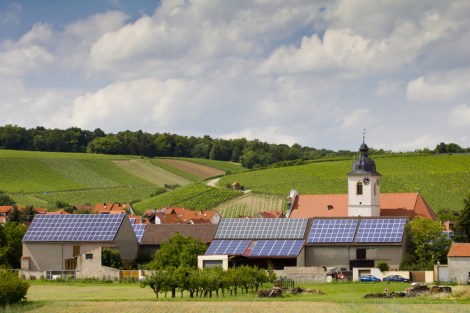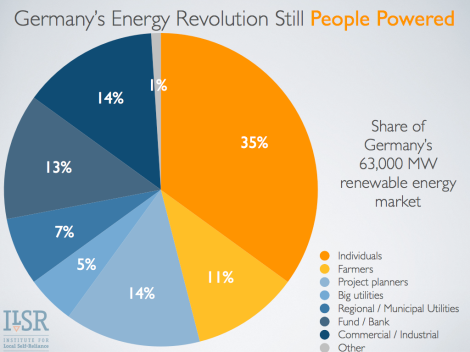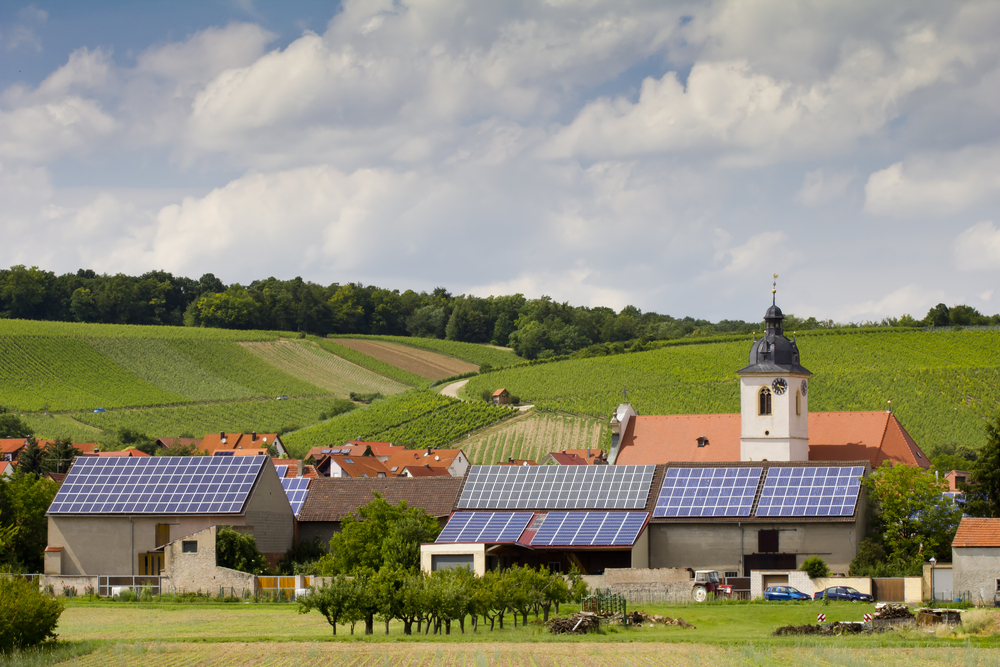
ShutterstockFranconia, Bavaria.
Germany is racing past 20 percent renewable energy on its electricity grid, but news stories stridently warn that this new wind and solar power is costing “billions.” What is often left out (or buried far from the lede) is the overwhelming popularity of the country’s relentless focus on energy change (energiewende).
How can a supposedly expensive effort to clean up the energy supply be so popular?
1. It’s about the cost, not the price
Most news stories focus on the cost of electricity in Germany, which has some of the highest rates per kilowatt-hour in the world. But they don’t note that the average German electricity bill — about $100 a month — is the same as for most Americans. Germans are much more efficient users of energy than most, so they can afford higher rates without having higher bills. (Note to self: Check out options for energy efficiency.)
2. It’s about vision
Germany doesn’t just have an incremental approach to renewable energy, but a commitment supported by 84 percent of residents to get to 100 percent renewable energy “as quickly as possible.” A few U.S. states have renewable energy visions (e.g. 33 percent by 2020, 25 percent by 2025) that approach Germany’s, but they’re mired in the notion that despite enormous savings to society in terms of health and environmental benefits, renewable energy shouldn’t cost any more today than conventional, dirty energy on the utility bill. Germans have taken the long view (about energy security, price volatility, etc).
3. It’s about ownership
I lied in No. 1. Support for Germany’s renewable energy quest isn’t about cost of energy, but about the opportunity to own a slice of the energy system. Millions of Germans are building their retirement nest egg by individually or collectively owning a share of wind and solar power plants supplying clean energy to their communities. Nearly half of the country’s 63,000 megawatts of wind and solar power is owned locally, and these energy owners care as much about the persistence of renewable energy they own as they do about the energy bill they pay. Not only do these German energy owners reduce their own net cost of energy, every dollar diverted from a distant multinational utility company multiplies throughout their local economy.

John Farrell, ILSR
Not only does local ownership flip the notion of energy costs as consumers become producers, it also flips the notion of political ownership. Three-quarters of Germans want to maintain a focus on “citizen-managed, decentralized renewable energy.”
The tunnel vision emphasis of cost, which is so prevalent in the press, reflects the perspective of incumbent utilities, whose market share declines as their former customers produce their own power. It’s a story that plays out in the U.S., when debates over new power plants focus narrowly on the cost per kilowatt-hour rather than how an individual or community can retain more of their energy dollar.
It may seem that Germany is going renewable “at all costs,” but only if we are resigned to being energy consumers. Our energy transition is a once-in-a-lifetime opportunity to take charge of our energy future. That’s priceless.



